In today’s rapidly evolving technological landscape, businesses are increasingly turning to artificial intelligence (AI) to enhance their operations, streamline processes, and improve decision-making. The integration of AI in business is no longer a futuristic concept; it has become a fundamental aspect of modern enterprises. According to a recent report by McKinsey & Company, nearly 50% of companies have adopted AI in at least one business function, showcasing the immense potential and opportunities that AI integration platforms provide. This article delves into the latest trends, interpretations, and future applications of AI in business, focusing on AI integration platforms and security solutions.
.AI Integration Platforms: Bridging the Gap Between Data and Insights
AI integration platforms serve as critical connectors for organizations aiming to leverage AI’s capabilities effectively. These platforms provide the necessary tools and frameworks for combining disparate data sources, ensuring seamless interoperability between various systems and applications. According to Gartner, organizations that successfully implement AI integration solutions are more likely to achieve significant improvements in operational efficiency.
In essence, AI integration platforms empower businesses to harness the power of data analytics, machine learning, and automation. Companies can automate repetitive tasks, enabling human resources to focus on more strategic initiatives. For instance, organizations like Salesforce and Microsoft have developed AI-powered integration platforms that enable businesses to analyze customer behavior intelligently, personalize marketing strategies, and predict future trends.
Startups are also leading the charge in AI integration; companies such as Tray.io and Integrately are offering low-code integration platforms that allow users to connect applications without the need for extensive coding knowledge. This democratization of technology ensures that businesses of all sizes can harness AI’s power without waiting for prolonged IT deployment times.
.Trends in AI Integration and Beyond
As AI technologies continue to mature, several key trends are emerging in AI integration platforms. One significant trend is the increased adoption of cloud-based solutions. Organizations are recognizing the benefits of cloud computing, such as scalability, flexibility, and cost-effectiveness. AI integration platforms deployed in the cloud can easily adapt to changing business needs while providing robust data processing capabilities.
Another trend is the rise of collaborative AI. Businesses are increasingly integrating AI systems that work together, allowing different AI models to share insights and learn from one another. For example, finance companies can integrate credit scoring AI with customer service AI to enhance both the financial decision-making process and customer experience. This collaborative approach ensures better accuracy and real-time learning.
Moreover, the growing focus on explainable AI (XAI) is reshaping the AI integration landscape. Companies are now demanding transparency regarding the decisions made by AI algorithms. This emphasis on interpretability leads to more robust AI systems, minimizing biases, and ensuring compliance with ethical standards.
.AI Security Solutions: Safeguarding Business Integrity
As businesses increasingly adopt AI technologies, concerns surrounding cybersecurity have also intensified. AI security solutions have emerged as powerful tools to combat potential threats. According to a report by Cybersecurity Ventures, global cybersecurity spending will exceed $1 trillion between 2021 and 2025, indicating a significant shift towards adopting AI in cybersecurity.
AI security solutions utilize machine learning algorithms to identify and respond to cyber threats in real-time. These systems analyze vast amounts of data to detect anomalies and predict potential threats, enabling businesses to take proactive measures. For instance, companies like Darktrace leverage AI to create self-learning systems that autonomously monitor network traffic and identify unusual patterns indicative of a cybersecurity breach.
Furthermore, AI security solutions aid in automating incident response and provide businesses with the capability to respond rapidly to potential threats. By utilizing AI-powered security operations and incident response (SOAR) tools, organizations can reduce response times from hours to minutes. The speed and efficiency of these solutions can significantly minimize potential damage caused by cyberattacks.
.AI in Business: Success Stories and Industry Use Cases
The integration of AI in business has yielded promising outcomes, evidenced by various success stories across multiple industries. For instance, in the healthcare sector, AI-powered diagnostic tools are revolutionizing patient care. Companies like Zebra Medical Vision analyze medical imaging data using machine learning algorithms to assist doctors in early disease detection, improving patient outcomes.
Similarly, in retail, AI is enhancing customer experiences by personalizing shopping journeys. E-commerce giants like Amazon employ advanced AI algorithms that tailor product recommendations based on individual browsing and buying behaviors. This not only increases customer satisfaction but also drives higher sales conversions.
In the finance industry, AI algorithms are transforming risk assessment and fraud detection. Institutions like PayPal utilize machine learning models to analyze user behavior, flagging suspicious transactions in real-time. This approach not only enhances security measures but also fosters trust between the financial institution and its customers.
Furthermore, AI’s potential in HR management is gaining momentum. Organizations are utilizing AI-powered platforms to screen resumes, match candidate qualifications with job descriptions, and reduce bias in hiring decisions. This not only accelerates the recruitment process but also promotes diversity and inclusion in the workplace.
.Finding the Right Balance: Challenges and Considerations
While the benefits of integrating AI into business operations are undeniable, organizations must also be mindful of challenges that accompany this transformation. One prominent concern is data privacy and compliance with regulations like GDPR. As businesses leverage AI to process vast amounts of sensitive data, ensuring ethical data handling becomes paramount. Organizations need to strike a balance between utilizing personal data for AI insights and respecting user privacy.
Additionally, companies must invest in upskilling their workforce to navigate AI technologies effectively. While the rise of AI offers exciting opportunities, it may also lead to job displacement. Organizations should focus on retraining employees, equipping them with the skills needed to work alongside AI, rather than view AI as a replacement.
.Final Thoughts: The Future of AI in Business
The integration of AI in business is set to redefine traditional practices and spark innovation across industries. AI-enabled integration platforms and security solutions present businesses with the tools they need to navigate the complexities of data and cybersecurity.
As organizations continue embracing AI, collaboration, transparency, and ethical considerations will play crucial roles in shaping the future landscape. Companies that proactively address these challenges and take advantage of emerging trends will position themselves as industry leaders.
Overall, artificial intelligence is no longer a theoretical construct; it is a tangible part of business strategy. Its abilities to enhance operational efficiency, safeguard data, and improve customer experiences provide a formidable framework for success in the digital age, paving the way for an exciting and transformative future.
**Sources:**
1. McKinsey & Company: “The state of AI in 2023”
2. Gartner: “AI Integration Trends”
3. Cybersecurity Ventures: “Cybersecurity Market Report”
4. Zebra Medical Vision: “AI in Healthcare Imaging”
5. Darktrace: “Self-Learning AI Technology”






























